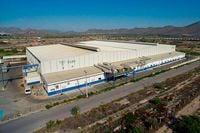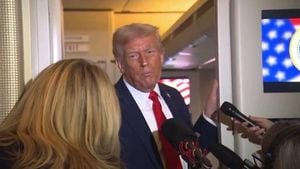On Thursday, March 27, 2025, Tupy, one of Brazil's largest metallurgical companies, announced a significant leadership transition with the appointment of Rafael Lucchesi Ramacciotti as the new CEO, effective May 1, 2025. This decision, formalized during a board meeting, comes as the company grapples with internal conflicts and shareholder dissatisfaction regarding its governance.
Fernando Cestari de Rizzo, the current CEO who has held the position since 2016, will remain in charge until April 30, 2025. The transition process will be managed collaboratively by the outgoing and incoming executives, as stated by Tupy.
The shift in leadership has sparked controversy, particularly among minority shareholders, who have been vocal about their concerns regarding the influence of major shareholders, specifically the Banco Nacional de Desenvolvimento Econômico e Social (BNDES) and the Banco do Brasil pension fund (Previ). Together, these entities hold approximately 53% of Tupy's voting capital and have been advocating for a change in leadership since 2024.
Minority investors, representing about 10% of Tupy's shares, view the decision to replace Rizzo as politically motivated rather than rooted in the company’s performance. They argue that Rizzo has successfully led Tupy through a period of growth and international expansion, which includes a record cash generation of R$ 1.4 billion in 2024.
Despite the push for leadership change, many shareholders, including those from Dynamo and Kinea, have expressed skepticism. They highlight that Tupy has demonstrated solid performance under Rizzo, achieving a net profit of R$ 82 million in 2024, despite a 6% decrease in net revenue to R$ 10.7 billion due to volume retraction.
Rafael Lucchesi comes to Tupy with extensive experience in industrial leadership and innovation, having served in strategic roles at the Confederação Nacional da Indústria (CNI) and as president of the BNDES Board of Directors. However, his lack of prior experience as a CEO of a major corporation raises questions among investors about his ability to steer Tupy effectively.
Lucchesi's appointment aligns with Tupy's strategy for innovation and global growth, as the company aims to enhance its market position and operational efficiency. The company has ambitious plans for future projects, including expanding its operations in Mexico and pursuing energy transition initiatives.
In a recent development, Tupy secured new contracts with two major truck manufacturers for structural components and heavy truck engine manufacturing. These contracts are expected to generate additional revenue of R$ 250 million annually, with production beginning in 2027 and 2028.
As Tupy navigates these changes, the company is also focusing on improving its operational efficiency. The completion of ongoing projects is anticipated by the end of 2025, which is expected to yield over R$ 150 million in annual cost savings.
Looking ahead, Tupy is optimistic about a recovery in sales starting in the second half of 2025, driven by economic growth and new product offerings. The company is preparing to introduce more complex products with attractive margins, which will further solidify its market presence.
However, the transition comes at a time when Tupy faces scrutiny not just from investors but also regarding the potential political influence on its governance. The company’s board includes three ministers from President Lula's government, raising concerns about the independence of its management.
In light of these developments, the Comissão de Valores Mobiliários (CVM) has initiated an investigation into the appointment of these ministers to the board, citing a lack of prior consultation about potential conflicts of interest.
As the leadership transition approaches, the minority shareholders are preparing to voice their concerns more formally, seeking clarity on the rationale behind Lucchesi's appointment and the future direction of the company.
With the changes in leadership and the ongoing scrutiny from various stakeholders, the path forward for Tupy remains uncertain. Investors are closely watching how the new CEO will navigate the challenges ahead while maintaining the company’s commitment to innovation and growth.
In the coming weeks, the company will need to address these concerns transparently to reassure its investors and stabilize its market position. The outcome of this transition could have significant implications not only for Tupy but also for the broader Brazilian industrial sector.
As Tupy stands at this crossroads, the effectiveness of its new leadership and the company's ability to adapt to changing market conditions will be pivotal in determining its future success.









